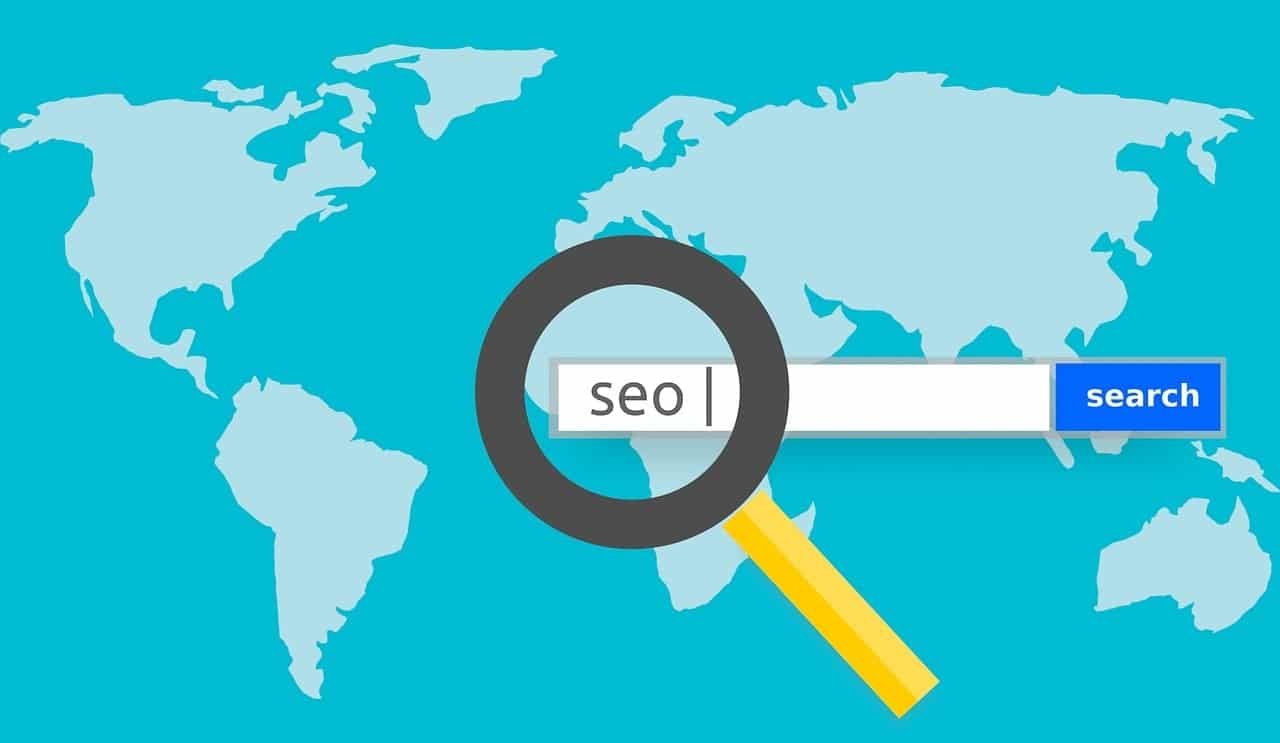
|
Getting your Trinity Audio player ready...
|
Google SEO, or search engine optimization, is the practice of enhancing a website to improve its ranking in Google’s search results. Higher rankings are crucial as they increase the likelihood of users clicking on and visiting a website. Google employs a sophisticated algorithm to determine website rankings, considering factors such as relevance, authority, and user experience.
Understanding Google SEO is essential for website owners and digital marketers aiming to boost online visibility and drive traffic to their sites. A fundamental aspect of Google SEO is keyword optimization. Keywords are the terms and phrases users input into Google when searching for information.
By optimizing a website for relevant keywords, the chances of appearing in search results for specific queries increase. Other critical factors in Google SEO include creating high-quality content, acquiring backlinks from reputable websites, and ensuring technical soundness and user-friendliness of the website. Focusing on these elements can improve a website’s visibility in Google’s search results and attract more organic traffic.
Table of Contents
ToggleKey Takeaways
- Google SEO is about optimizing your website to rank higher in Google search results
- Keyword research helps you understand what your target audience is searching for
- On-page optimization involves optimizing your website’s content, meta tags, and URL structure
- Off-page optimization includes building backlinks and increasing your website’s authority
- Technical SEO focuses on improving website speed, mobile-friendliness, and overall user experience
- Measuring and tracking SEO success involves monitoring keyword rankings, organic traffic, and conversion rates
Keyword Research and Analysis
Understanding the Importance of Keyword Research
Keyword research and analysis are crucial components of any successful Google SEO strategy. This process involves identifying the most relevant and valuable keywords for your website, as well as analyzing the competition for those keywords. By understanding which keywords are most important to your target audience and which ones are most competitive, you can create a more effective SEO strategy that will help your website rank higher in Google’s search results.
Tools and Techniques for Keyword Research and Analysis
There are several tools and techniques available to help with keyword research and analysis. These include using keyword research tools such as Google Keyword Planner, SEMrush, and Ahrefs to identify relevant keywords and assess their search volume and competition. Additionally, analyzing your competitors’ websites can provide valuable insights into which keywords are driving traffic to their sites and how you can compete for those keywords.
Optimizing Your Website’s Content with Keyword Research
By conducting thorough keyword research and analysis, you can identify the best opportunities for optimizing your website’s content and improving its visibility in Google’s search results.
On-Page Optimization Techniques

On-page optimization refers to the process of optimizing individual web pages to rank higher and earn more relevant traffic in search engines. This involves optimizing various elements on your website, including content, HTML source code, and images. By implementing on-page optimization techniques, you can improve your website’s visibility in search results and attract more organic traffic.
One of the most important on-page optimization techniques is optimizing your content for relevant keywords. This involves incorporating target keywords into your page titles, headings, meta descriptions, and body content in a natural and user-friendly way. Additionally, optimizing your HTML source code by including relevant meta tags, such as title tags and meta descriptions, can help improve your website’s visibility in search results.
Finally, optimizing your images by using descriptive file names and alt text can also contribute to better search engine rankings. Another important on-page optimization technique is improving the user experience on your website. This includes ensuring that your website is easy to navigate, loads quickly, and is mobile-friendly.
By providing a positive user experience, you can increase the likelihood that visitors will stay on your site longer and engage with your content, which can ultimately lead to higher search engine rankings.
Off-Page Optimization Strategies
| Off-Page Optimization Strategies | Description |
|---|---|
| Link Building | Acquiring backlinks from other websites to improve search engine rankings. |
| Social Media Marketing | Promoting content and engaging with audiences on social media platforms to increase brand visibility. |
| Guest Blogging | Writing and publishing articles on other websites to build authority and gain backlinks. |
| Influencer Outreach | Collaborating with influencers to promote products or content and reach a wider audience. |
| Content Marketing | Creating and sharing valuable content to attract and engage target audiences. |
Off-page optimization refers to the actions taken outside of your own website to impact your rankings within search engine results pages (SERPs). This includes building backlinks from other reputable websites, as well as promoting your website through social media and other online channels. By implementing off-page optimization strategies, you can improve your website’s authority and relevance in the eyes of search engines, which can lead to higher rankings and more organic traffic.
One of the most important off-page optimization strategies is building high-quality backlinks from other websites. Backlinks are links from other websites that point to your site, and they are an important factor in determining your website’s authority and relevance. By earning backlinks from reputable websites within your industry, you can improve your website’s credibility and increase its visibility in search results.
In addition to building backlinks, promoting your website through social media and other online channels can also contribute to off-page optimization. By sharing your content on social media platforms such as Facebook, Twitter, and LinkedIn, you can increase the visibility of your website and attract more traffic. Additionally, engaging with influencers within your industry and participating in online communities can help promote your website and build its authority and relevance in the eyes of search engines.
Technical SEO and Website Performance
Technical SEO refers to the process of optimizing your website for crawling and indexing by search engines. This involves ensuring that your website is technically sound and free of any issues that could negatively impact its visibility in search results. By addressing technical SEO issues and improving website performance, you can increase your website’s chances of ranking higher in Google’s search results.
One of the key aspects of technical SEO is ensuring that your website is easily crawlable by search engine bots. This involves creating a clear site structure, using a sitemap to help search engines understand the organization of your site, and addressing any issues that could prevent search engines from accessing and indexing your content. Additionally, optimizing your website’s loading speed by minimizing server response time, leveraging browser caching, and compressing images can also contribute to better search engine rankings.
Another important aspect of technical SEO is ensuring that your website is secure and mobile-friendly. This includes implementing HTTPS to encrypt data transmitted between your website and its visitors, as well as ensuring that your website is responsive and easy to use on mobile devices. By addressing these technical SEO issues and improving website performance, you can create a better user experience and increase the likelihood that visitors will engage with your content, which can ultimately lead to higher search engine rankings.
Mobile SEO and User Experience
Designing for Mobile-Friendliness
A key aspect of mobile SEO is ensuring that your website is responsive and easy to use on mobile devices. This involves creating a mobile-friendly design that adapts to different screen sizes and resolutions, as well as optimizing page load times for mobile users. Moreover, making sure your website’s content is easily accessible and readable on mobile devices can lead to a better user experience and increase the likelihood that visitors will engage with your content.
Optimizing for Local Search
Another vital aspect of mobile SEO is optimizing for local search. This involves creating location-based content and using local keywords to target mobile users searching for information related to specific geographic areas. By optimizing for local search, you can increase the visibility of your website in local search results and attract more traffic from mobile users looking for nearby businesses or services.
Boosting Visibility and Engagement
By optimizing your website for mobile devices, you can improve its visibility in search results, attract more organic traffic, and increase engagement with your content. With mobile SEO, you can ensure that your website provides a positive user experience, regardless of the device used to access it.
Measuring and Tracking SEO Success
Measuring and tracking SEO success is essential for understanding the impact of your SEO efforts and making informed decisions about future strategies. By monitoring key performance indicators (KPIs) such as organic traffic, keyword rankings, backlink profile, and conversion rates, you can gain valuable insights into how well your SEO strategy is performing and identify areas for improvement. One of the most important KPIs to track is organic traffic, which refers to the number of visitors who find your website through organic search results.
By monitoring changes in organic traffic over time, you can assess the effectiveness of your SEO efforts and identify any fluctuations or trends that may require further investigation or action. In addition to organic traffic, tracking keyword rankings can provide valuable insights into how well your website is performing in search results for specific keywords. By monitoring changes in keyword rankings over time, you can identify opportunities to optimize existing content or create new content targeting high-value keywords.
Another important KPI to track is backlink profile, which refers to the quality and quantity of backlinks pointing to your website from other websites. By monitoring changes in your backlink profile over time, you can assess the impact of your off-page optimization efforts and identify opportunities to build new high-quality backlinks. Finally, tracking conversion rates can help you understand how well your website is converting organic traffic into leads or sales.
By monitoring changes in conversion rates over time, you can identify opportunities to optimize landing pages or improve the user experience to increase conversions. In conclusion, understanding the basics of Google SEO is crucial for anyone looking to improve their website’s visibility in search results and attract more organic traffic. By focusing on keyword research and analysis, on-page optimization techniques, off-page optimization strategies, technical SEO and website performance, mobile SEO and user experience, as well as measuring and tracking SEO success, you can create a more effective SEO strategy that will help you achieve better rankings in Google’s search results.
FAQs
What is SEO?
SEO stands for Search Engine Optimization, which is the practice of increasing the quantity and quality of traffic to your website through organic search engine results.
Why is SEO important for Google?
Google is the most popular search engine, with over 90% of the global market share. Optimizing your website for Google can help improve your visibility and ranking in search results, leading to increased traffic and potential customers.
What are some key factors for cracking SEO on Google?
Some key factors for cracking SEO on Google include keyword research, creating high-quality and relevant content, optimizing on-page elements such as title tags and meta descriptions, building high-quality backlinks, and ensuring a mobile-friendly and fast-loading website.
How can I improve my website’s ranking on Google?
To improve your website’s ranking on Google, you can focus on creating valuable and relevant content, optimizing your website for mobile devices, improving page load speed, and earning high-quality backlinks from reputable websites.
Is it possible to crack SEO on Google quickly?
SEO is a long-term strategy, and it takes time to see significant results. While there are some quick wins that can improve your website’s visibility, cracking SEO on Google typically requires consistent effort and ongoing optimization.

























































